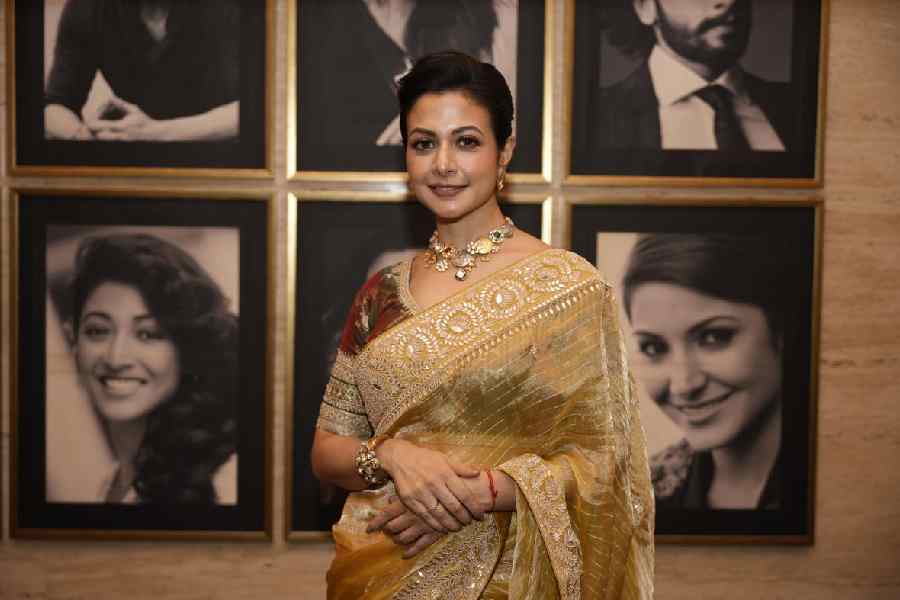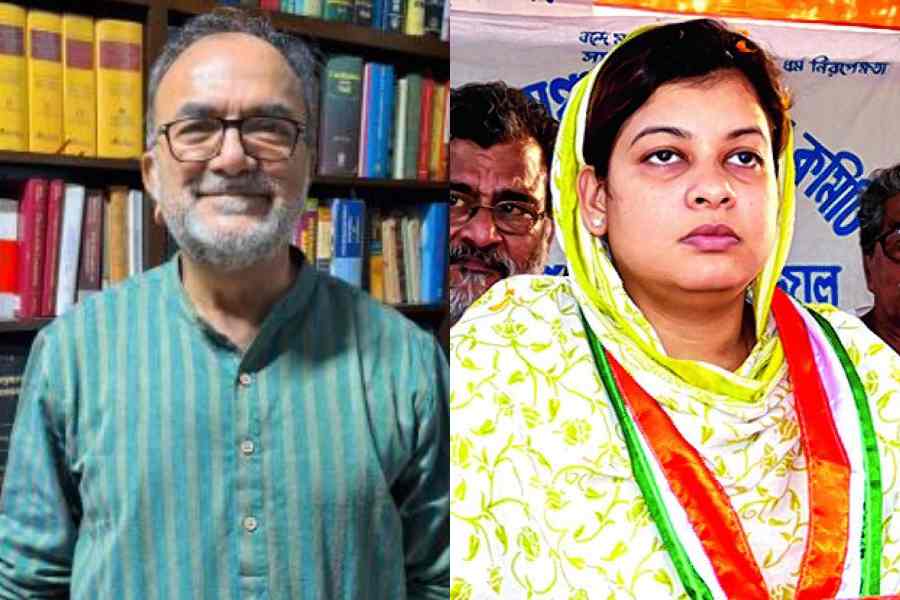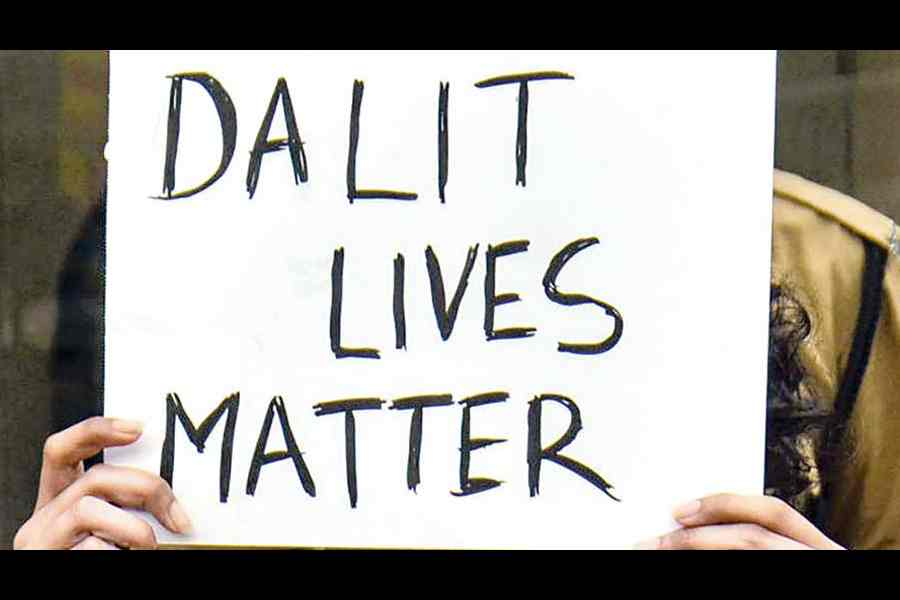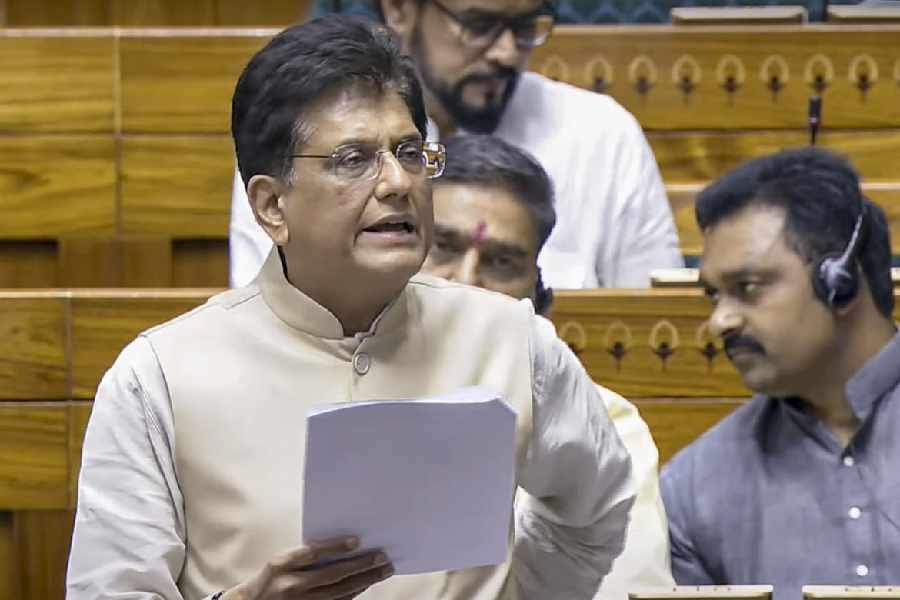The Bengali box office has a winner this post-Puja season with Annapurna Basu’s Sharthopor, a social drama starring Koel Mallick, Ranjit Mallick, Koushik Sen, Indrajit Chakravarty and Anirban Chakrabarti. The film is a fine example of the unspoken sacrifices required to be made to keep the closest of familial relationships alive. Koel, Koushik Sen and Ranjit Mallick own their roles effortlessly and effectively, while Anirban Chakrabarti convincingly plays a shrewd lawyer with motivations of his own.
Sharthopor is a film that demands to be felt. It’s about a family torn asunder by expectations and the demanding of familial rights. Koel’s Aparna Ghoshal and Koushik’s Sourav Basu, brother and sister, see their relationship come to a head when Sourav takes his sister to court when she refuses to relinquish her rights over their ancestral home in Ganganagar, thus disallowing him to register the first floor of the property for rent and throwing all his plans to earn from it awry.
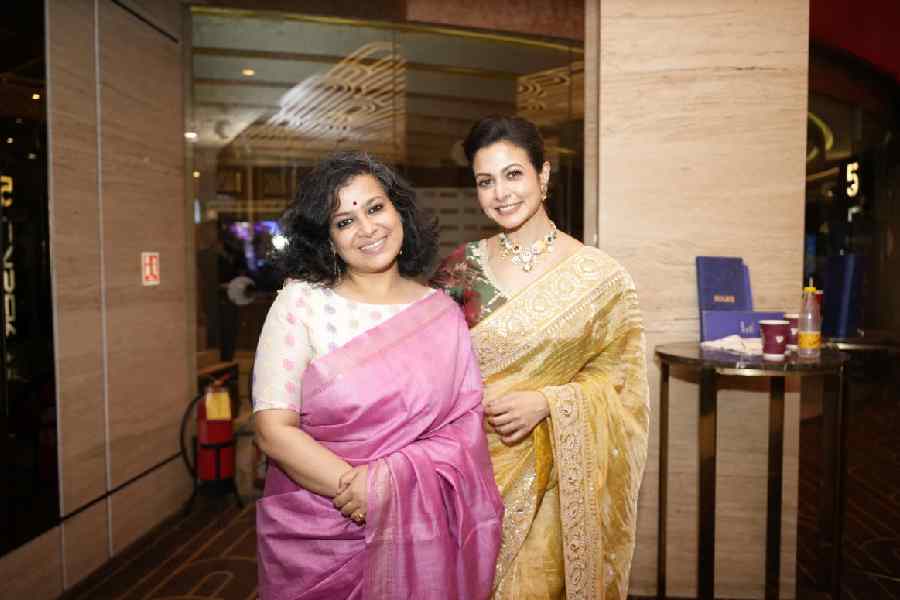
Annapurna Basu and Koel Mallick
Questions of money, of inheritance, of property rights — of family loyalty and betrayal, essentially — all crop up in the narrative, and the film is filled with heart, love and the underlying regret in both characters at what their bond has tapered into. If there was a film that, upon first watch, you could tell was made by a woman, then Sharthopor certainly is one — it comes with all the sharp self-awareness of a woman’s gaze turned inward, but not without the contradictions that this gaze inevitably brings: empathy intertwined with judgment, sensitivity with control, and emotion with critique.
What stands out most in Sharthopor is the fact that it does not take sides, instead straddling each party’s position as victim of circumstance, pride, and love. The film lingers in the grey shadows of moral ambiguity, but its powerful feminist take is entirely unmissable. Indeed, the strongest part of the narrative is the one in which Ranjit Mallick delivers a monologue about the rights — inheritance, social, or otherwise — denied to women, citing the law of the country, written and re-written by social reformers like Raja Ram Mohan Roy. The film’s being buoyed between these moments of emotional crescendos and stern courtroom proceedings is a matter of delicate balance, and Basu manages to achieve this with ease.
Koel’s turn as the repressed, understated, sincere sister forced to battle her brother in court demands praise, as does Koushik Sen’s rendition of the jovial-but-easily-hot-headed brother/family man bound by financial restraints, who must choose economic stability for his own family over decisions that would otherwise be governed by emotion. Anirban Chakrabarti as Sourav’s razor-sharp lawyer, Sarkhel, is also worthy of praise, but perhaps what sticks with one most is the unspoken language between all these characters, one that flows through hesitations, confrontation and, eventually, acceptance. That is where Sharthopor finds its greatest strength: in a brother’s silence when his sister is being questioned in court, in a sister’s defending her brother after a particularly bad grilling, in its denouement that is bound to leave you with a lump in your throat, and in the fact that at the end of it, the story is simply about family — and a reminder that in families, as in life, love and resentment often occupy the same breath.
“The reaction has been very positive, which we are very grateful for. The story is wonderful, and, as I have said many times before, it is a very contemporary and context-appropriate story. We hope that the crux of it will reach and appeal to many more people in the days to come, and we are thankful that audiences have been enjoying the film and holding space for it in their hearts so far,” said Koel. Here are snapshots of a special screening of the movie at PVR-INOX (South City) on October 24.

